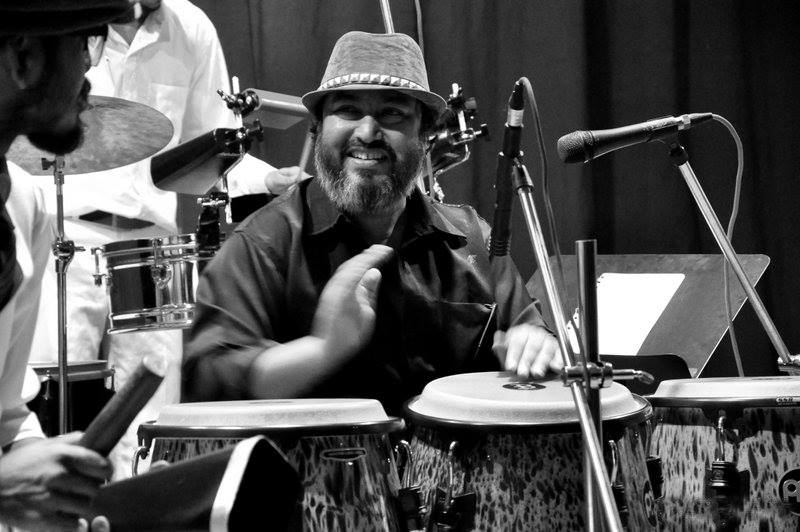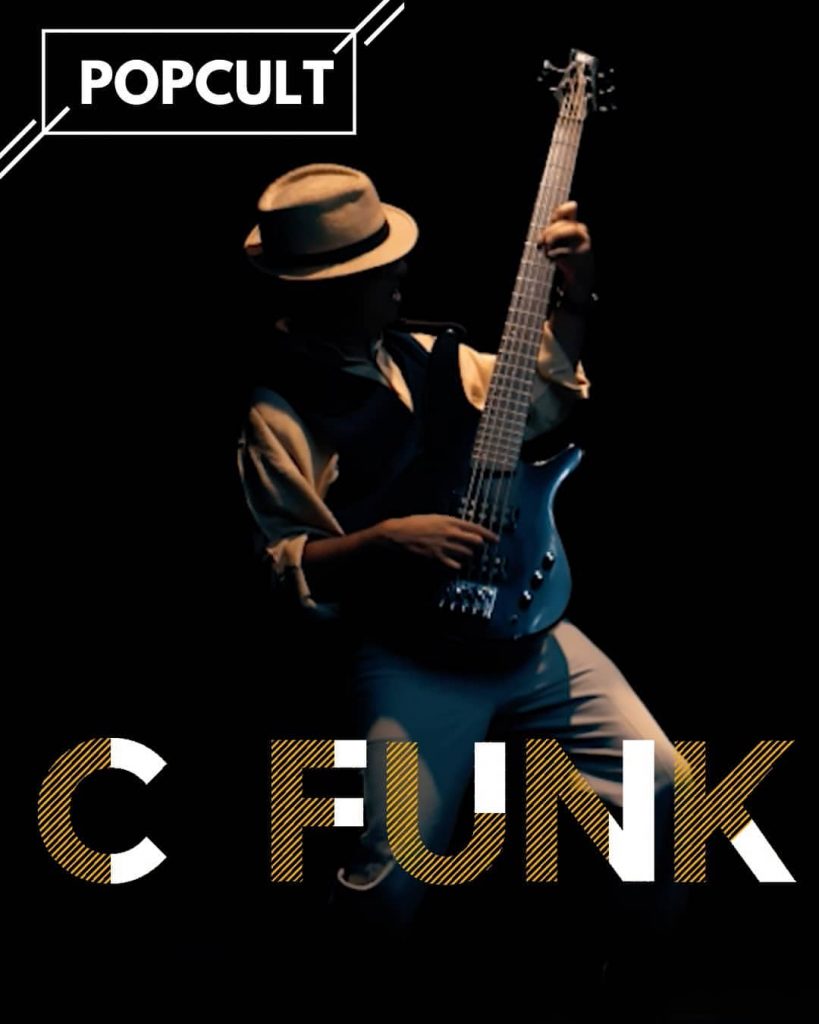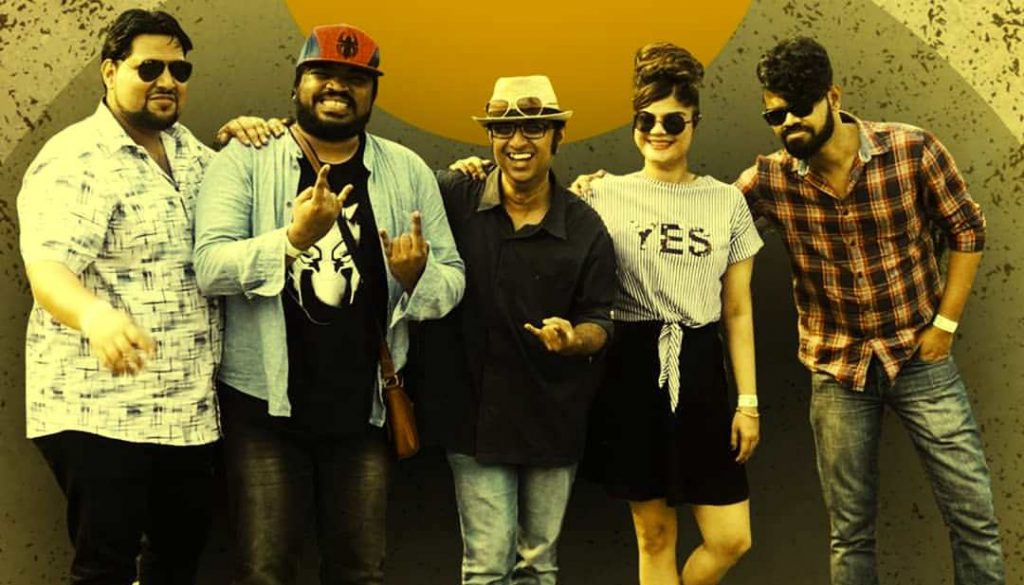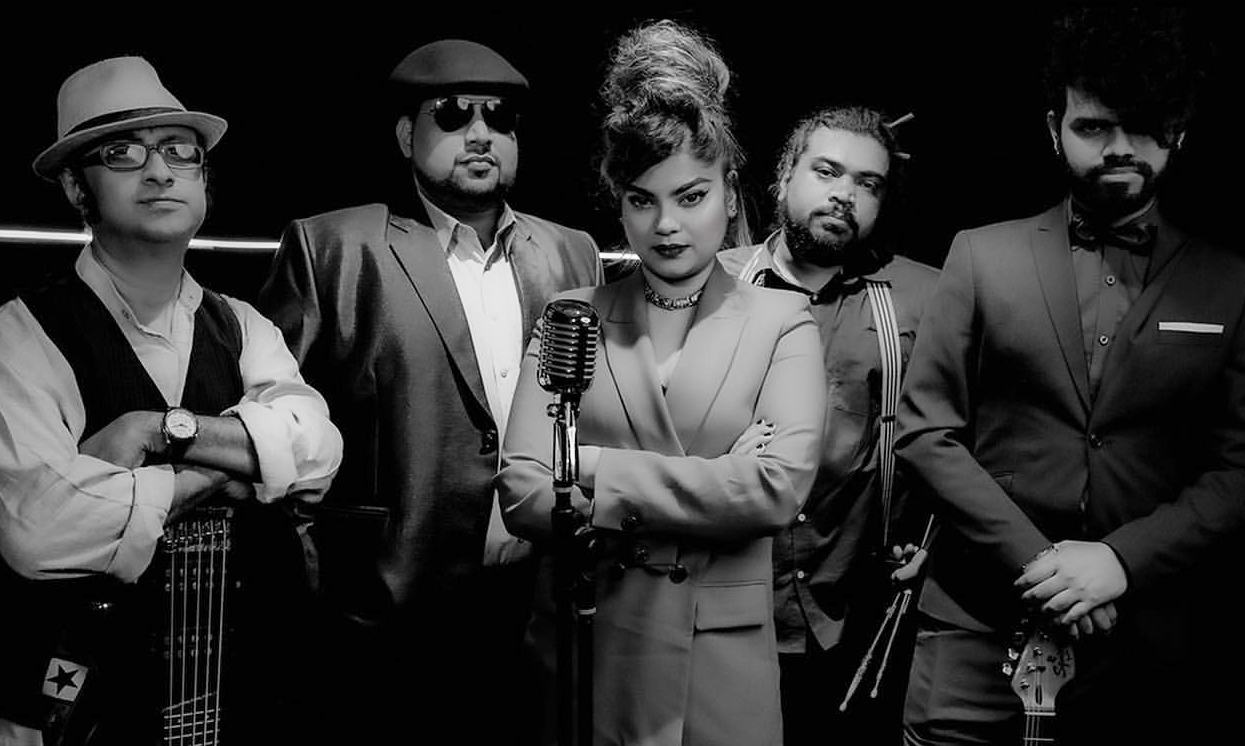It’s bizarre how some songs stick to your head. Like this one, C Funk from Popcult. I heard it quite by accident – since Gaurab ‘Gaboo’ Chatterjee is the percussionist of the band, and he remains a blast from my now largely defunct past in Calcutta.
I used to assist his father Gautam Chatterjee in my early twenties. Gautam-da, a National Award winning film-maker and an iconic musician, has been the only ‘mentor’ I ever had; all the rest have been good friends.
But he’s not why I am writing this post. I am writing this since the debut song of Popcult refuses to budge out of my head. It shows no signs of weaning out.
Why so? Is it because there’s a concealed note of ‘finality’ in it – a moody pathos that remains evident despite its peppy tune? Is it because it shows some kind of a mirror to my creeping grayness? Is it a song about life against others?
Whatever it is, it’s adhesive. But why?
All songs start with an idea …
I wanted to find out why this song feels intimate.
“You look
Really tired
You’re obviously wired
To the fake system
Of hate and dominance
You’re Just a Pawn
You need to get out
Detoxify…”
I sincerely think we should first listen to the song before we move on to its making story.
Mainak ‘Bumpy’ Nagchowdhury, who wrote the song , and is the bassist of the band POPCULT, told me about its genesis.
Originally named ‘Fairytale’ – the song was about someone very close to him, his mentor Manojit Dutta, better known as ‘Kochu-da’ in the circle of Calcutta musicians.
A cult-figure in Latin percussion, Kochu-da was a self taught multi-instrumentalist, who was also responsible for guiding a whole lot of young musicians into the hallowed path of music, with some of whom he created India’s first authentic Latin Band with the name of ‘Orient Express’ – about two decades back.
On October 6, 2017, Manojit ‘Kochu’ Dutta died while doing what he loved. It was a few moments after the sound check at a Delhi Jazz Club, where his band was just about to perform.

How memories converge to create tunes and words!!
Bumpy shared a whole lot of anecdotes about how his entire musical aesthetics was shaped by ‘Kochu’ da very early in his life; about how he was taught not just to perform, but to ‘live’ the ‘latin’ way of life; about how those long training sessions with Manojit Dutta used to be more about a process of unlearning and building an attitude and ‘living the culture’ rather than just stringing some chords and playing some beats.
“If he had five six hours to train us, we would play the music only for about twenty minutes. The rest used to be spent in discussions and orientation and listening to songs – quite a lot of them. He insisted that we should stay in the culture till it started getting into our bones…” Bumpy says.

Now ‘C Funk’ was starting to make sense.
Especially the refrain…
“In The End
There’ll be no pain
We’ll go dancing and partying into the light
It’s been fun, being on the run.
Chasing and living my dreams
Is the only way, (to be free…)
That’s the beauty of the song – while it’s about someone, it’s also about everyone. It’s like a healing exercise coming from a life-coach, in this case a musician. But if you don’t know that back-story, doesn’t matter. You will know someone else you have lost; and that someone else might have danced into the light… living his or her dreams…

Making your personal emotions ‘universal’
Bumpy says that the core mood of the song is camouflage. I so agree to him. That’s probably how most of what we write becomes personal and popular to others. The ache I feel, the bliss that inspires me is probably not of much consequence to others – unless I manage to tap some hidden fountainhead in their own being that relates my work to their own pain and pleasure. That tipping point of emotion is best reached through what Bumpy called the ‘Art of Hiding’.
That’s the magic of all creative expressions that withstand the test of time. They hijack your emotions – and even make you feel cathartic about it.
“They’ll DO anything
Trying to keep you down
Over n over again
They’ll tell you that
You aren’t good enough
It’s all a lie.”
The initial idea might be to talk about the lifelong struggles, the ups and downs of an artist – but in a way these lyrics belong to everyone; open to interpretation.
Like Tanya told me, although she did know the story behind the song, she interpreted it quite differently and made it personal. “This song talks about the healing powers of music and that is a very relatable emotion for any musician. We all go through ups and downs in our lives and as an artist -music is probably the only solace.”
Tanya’s response stands true for mere listeners like me as well.
Band songs are never made in isolation
Bumpy had a basic premise to work with in terms of words and knew the stuff he wanted to say – but like all musician-songwriters I know – he worked on the tune first and created words to go with it. Now that’s not a linear process. Sometimes, words listen to the tune and yet other times, the tune has to accommodate the verbal mandates. I have seen that happen with many songs.
Anyways, by his own admission, Bumpy wrote the first scratch of the song in around 12 hours at a stretch – start to finish. Here, ‘wrote’ means not just words, but lyrics put to music. It was funk inspired, true, but not water-tight, with hints of Indie. Bumpy says, “I can speak the way we speak. Nobody can stop me from doing that.” I agree.
I have heard that rough-cut track – in Bumpy’s own vocals, bare-bones version.
Even in that shape – it’s impressive. Obviously, since POPCULT, a band of seasoned musicians with years of experience behind them, heard it and was inspired enough to consider the song as their debut single – it had to be impressive!!
Then, they sat down with the song, together, decoding it, with every member bringing something to the table, spicing the melody bit by bit, carefully, pruning some words, adding a chorus to emphasize on the mood of certain expressions … and all that. It was also decided, since it was a debut single – to name the song C -Funk, where C stands for Calcutta.
Tanya says, “After playing 3 or 4 times the song started to come together. Arrangements were made; fresh new perspectives and ideas were incorporated. We hit the studio almost within a week from the time the song got ready. With C funk it was a very swift process.”
That shows in the song. It’s seamless, somewhat effortless in the way the arrangement flows, and the instruments come together.

Although I shouldn’t dare to act like a music critic, as a lover of music I will have to say here that the song is ‘dynamic’ but with a ‘smooth’ and ‘swing’ feeling about it – where every band-member has an individual role to play, but they are playing together, with none overshadowing the other.
This is the kind of music that takes you back to the golden era of bands – a wholesomeness that captivates, and the strain stays on. It returns when you least expect it to. You don’t play music like that any more.
A bit about Team Popcult
I know it’s a five member ‘dance’ oriented band with Tanya Sen on Vocals, John Paul on Guitars, Mainak Nag Chowdhury on Bass, Gaurab Chatterjee on Drums and Dominic Saldanha on Keys.
But that’s about all I know – I have never listened to them live.
In fact this song is my first introduction to them, so I will just stick to what two of its members told me about the making and the evolution of the band.


For me, it’s thanks POPCULT, for giving me a very personal song.
I couldn’t help but share with you here a touching eulogy to Manojit Dutta by another of his disciples Sumit – from his band Orient Express. I came across this on Facebook.
With due permission, I bring you an excerpt, but would rather suggest you read the whole piece on his Face Book page.
When I asked Gaboo, he said although Kochuda never directly taught him, he has been a huge inspiration all along. It’s probably all that sense of camaraderie for an iconic musician, and the person he was, loved by all, that has come together in C-Funk.
That’s what gives the song a personality, and makes it special.
That’s one feeling I can relate to.
Even after about 20 years of losing my only mentor ever, I still don’t believe he isn’t there for me. Someday, I will dare to write about him.
Problem is, that might require an entire independent blog of its own.
Or a book! In Bangla!! Let’s see.

But yes, I have so many happy memories of that room.


Be First to Comment